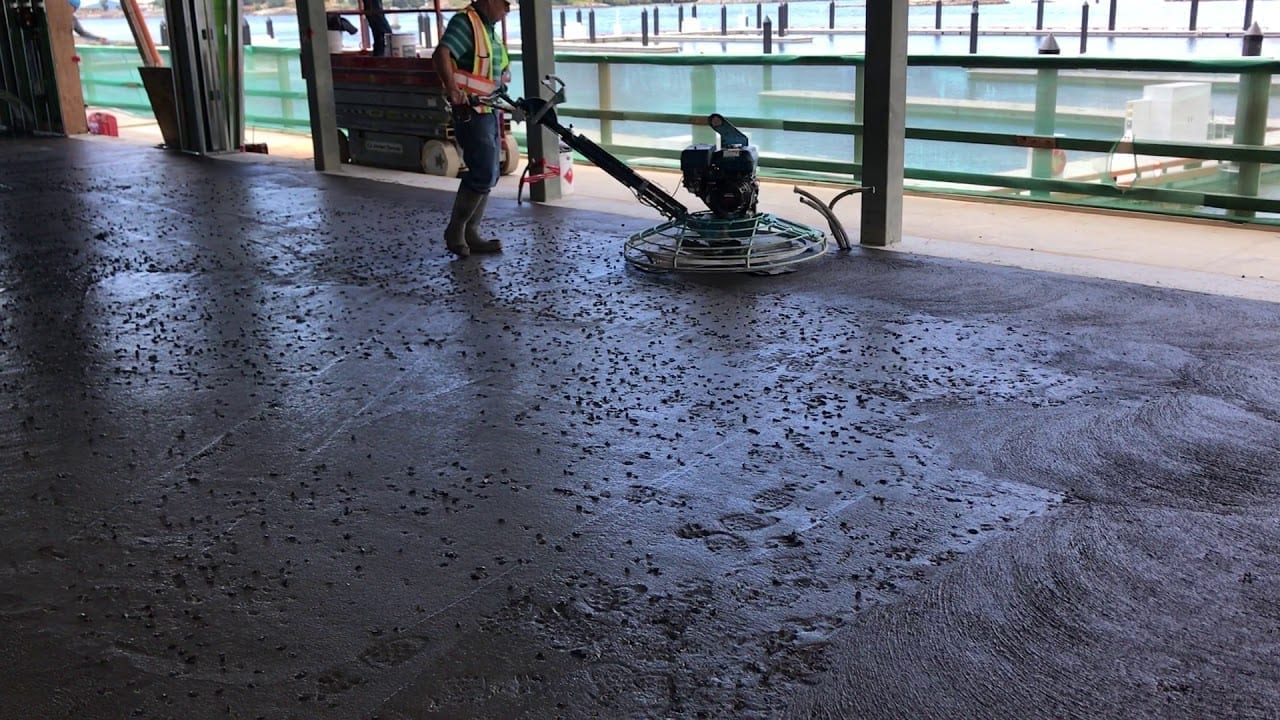
The team demonstrated that the use of husks reduces the density of concrete as well as boosting the material’s resistance to cracking after exposure to icy then thawing conditions.
Sunflower seed husks, a huge waste product of the vegetable oil and food industry, could be used as an environmentally friendly filler, or aggregate, for concrete according to Turkish researchers writing in the International Journal of Environment and Waste Management. The team demonstrated that the use of husks reduces the density of concrete as well as boosting the material’s resistance to cracking after exposure to icy then thawing conditions.
Engineers Can Burak Sisman and Erhan Gezer of Namik Kemal University in Turkey, explain how the accumulation of unmanaged wastes from the food industry, particularly in developing countries is becoming increasingly problematic. As such, researchers are hoping to find new applications for such waste in the creation of environmentally friendly materials and composites in the road-building and construction industries for instance. This is particularly pertinent given the rising cost and chronic shortages of conventional materials. Engineers are thus being challenged to convert industrial wastes to replacements for certain materials.
Concrete is perhaps one of the most energy and resource intensive materials and researchers have investigated and applied waste rubber, glass powder and paper waste sludge as alternative fillers and bulking agents. The addition of such materials can affect significantly the properties of concrete altering its strength, density and water resistance detrimentally in some instances.
The team has turned to the sunflower seed and more specifically its inedible husk as a possible alternative material for concrete. Turkey is the ninth largest sunflower producer in the world, generating almost a million tonnes of product from 584000 hectares, the bulk of which is used in the manufacture of sunflower oil in the Thrace region. The by-product is approximately 300000 tonnes of fibrous seed husk. The team has therefore experimented with different formulations of seed husk in a concrete mix.
The Latest Bing News on:
New Kind of Concrete
- Edging push their punk to the point of no returnon May 1, 2024 at 12:26 pm
With a sax in their front line, a solar shower in their van, and a scorching new album, Edging are ready to leave it all on the road.
- Massive abandoned airport 3 times the size of Monaco left with rusting jumbo jets to be BULLDOZED & turned into new cityon May 1, 2024 at 10:28 am
To make it a smart city, a one-of-a-kind software will be introduced which will oversee ... However, by the end of this summer, at least seven new condo buildings will be visible from the coast, ...
- A teen was found buried in a basement in New York. An engraved ring helped police learn her identity two decades lateron May 1, 2024 at 7:25 am
New York City police spent two decades unraveling the mystery of a teen girl whose remains were found along with a monogrammed ring in 2003, encased in concrete in a basement. They just learned her ...
- Urban canines: The plight of dogs in the concrete jungleon April 30, 2024 at 8:52 pm
BENGALURU: You must have seen them during your evening walks. Hefty dogs dragging homo sapiens along to sniff at a plant. Heads bent low in shame, well-fed, moisturised, in their own lane – minding ...
- How to Stain a Concrete Patio (Or Sidewalk, Or Another Solid Concrete Surface)on April 29, 2024 at 5:44 am
Staining a concrete patio is a great way to boost the appearance of an old concrete surface. Just like a fresh coat of stain on a deck, revitalizing the porous surface of your outdoor living space can ...
- Some Concrete Reasons Not to Be Totally Panickedon April 28, 2024 at 10:01 pm
All of which is to ask you to give me some concrete reasons not to be totally panicked.
- From Mud Bricks to Smart Concrete: A Brief History of Building Materials Technologyon April 26, 2024 at 5:34 am
From mixing lime with water to self-sensing concrete, building materials technology has come a long way—and so have building standards.
- 6 best foundation repair companies in Kingsville, Texason April 24, 2024 at 9:00 pm
Look for foundation repair companies in Kingsville with at least 3.5 out of 5 stars on Google Reviews and a good rating on Better Business Bureau (BBB). Use the filters below to help you find the ...
- 10 best foundation repair companies in Encinitas, Californiaon April 24, 2024 at 9:00 pm
Look for foundation repair companies in Encinitas with at least 3.5 out of 5 stars on Google Reviews and a good rating on Better Business Bureau (BBB). Use the filters below to help you find the right ...
- Buying Used Concrete Equipment? Beware of Hidden Lienson April 24, 2024 at 4:00 am
There's an uncommon-but-real issue that could crop up when buying any type of used equipment, and that’s buying equipment that unknowingly has a lien on it.
The Latest Google Headlines on:
New Kind of Concrete
[google_news title=”” keyword=”New Kind of Concrete” num_posts=”10″ blurb_length=”0″ show_thumb=”left”] [/vc_column_text]The Latest Bing News on:
Concrete
- First concrete poured for Lianjiang 2on May 1, 2024 at 3:02 am
First concrete has been poured for the nuclear island of unit 2 at China’s Lianjiang NPP in Guangdong province. State Power Investment Corporation (SPIC) said it expected to pour a total of about ...
- MDOT looks at use of precast concrete for 131 bridge projecton April 30, 2024 at 11:01 pm
The ongoing road construction project involving bridge work on U.S. 131 and M-115 near Cadillac, Michigan, has raised a reader's query regarding the use of pre-cast components. Michigan Department of ...
- 10 Ways You Didn’t Know You Could Use Concreteon April 30, 2024 at 8:58 pm
How to Mix Concrete Before you start on your first concrete project, take some time to learn the best way to mix concrete. This will ensure that your project doesn’t crumble when you take it out of ...
- Concrete arrives for Pomperaug High’s tennis courtson April 30, 2024 at 2:29 pm
SOUTHBURY - Forty-seven truckloads of concrete were delivered to Pomperaug High School on Tuesday as part of the ongoing reconstruction of the school's five tennis courts, which have been closed and ...
- Why is the concrete center median along the 10 Freeway in Ontario being redone?on April 30, 2024 at 12:15 pm
Q: Readers Gary Valdez of Yucaipa and David Rollins of Claremont asked about the median barrier and construction area along the 10 Freeway in Ontario where the new express lanes are being built. “My ...
- Biden, Mexican President Vow ‘Concrete Measures’ to Limit Illegal Border Crossingson April 30, 2024 at 5:43 am
The two leaders ordered their national security teams to work together to "immediately implement concrete measures to significantly reduce irregular border crossings while protecting human rights." ...
- Remains Found in Concrete 20 Years Ago Identified as Missing Teen From Late 1960son April 29, 2024 at 7:43 am
Police in New York have identified the remains of “Midtown Jane Doe,” found encased in concrete at a former Hell’s Kitchen hotspot two decades ago, thanks to a boost involving DNA from a victim of the ...
- How to Stain a Concrete Patio (Or Sidewalk, Or Another Solid Concrete Surface)on April 29, 2024 at 5:44 am
Staining a concrete patio is a great way to boost the appearance of an old concrete surface. Just like a fresh coat of stain on a deck, revitalizing the porous surface of your outdoor living space can ...
- Developer LeoTerra nears completion on $30 million concrete pipe plant in East Greensboroon April 29, 2024 at 5:03 am
LeoTerra Development Inc. is nearing completion of the TerraCon Pre Cast Plant, a 45,799-square-foot concrete precast pipe plant located at 113 Ward Rd., off of Burlington Road and anout three miles ...
- Some Concrete Reasons Not to Be Totally Panickedon April 28, 2024 at 10:01 pm
All of which is to ask you to give me some concrete reasons not to be totally panicked.
The Latest Google Headlines on:
Concrete
[google_news title=”” keyword=”Concrete” num_posts=”10″ blurb_length=”0″ show_thumb=”left”]










